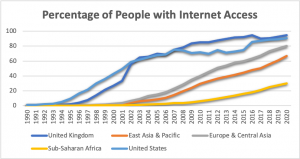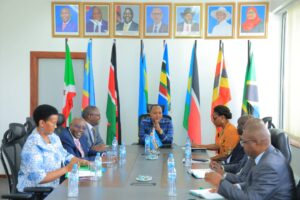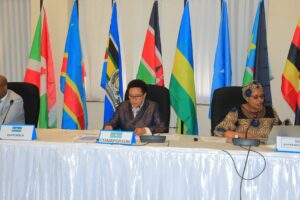
From Connections to Commerce: How the AfCFTA Can Harness the Power of the Internet for Economic Growth
The African Continental Free Trade Area (AfCFTA) aims to promote trade and economic growth, creating job opportunities and reducing poverty. However, internet connectivity is crucial to achieving its goals. The internet plays a fundamental role in connecting people and businesses, with a much larger market than before. Internet connectivity promotes social and economic development by enabling access to education, healthcare, financial inclusion, and other essential services. Many African countries are increasingly imposing internet restrictions. This is often done under the guise of national security or public order. In 2017, there were 12 such restrictions. By 2019, the number had risen to 25 with Uganda and Tanzania enforcing internet restrictions during their general elections in 2021 and 2020, respectively. Ethiopia also enforced restrictions in June 2020, following the killing of activist and singer Hachalu Hundessa which led to unrest.
Internet connectivity is a game-changer for developing countries’ knowledge economies. It attracts investors, agencies, and other businesses. The African Continental Free Trade Area (AfCFTA), which has the potential to create jobs and reduce poverty by promoting trade and economic growth, can achieve its goals by prioritizing internet connectivity. This will ensure that people are connected and able to exploit e-opportunities.
Companies investing in information technology are growing and competing globally. Technological advancements create more jobs, government revenues, and political participation. Terms like e-commerce, e-economy, and e-business highlight the significance of the digital economy with big multinationals such as Amazon, Alibaba, and Uber have benefited from this trend.
In contrast to other areas where more than half of the population is online, Sub-Saharan Africa has less than half of its people connected to the internet. In 2020 only 30% of individuals in Sub-Saharan Africa had reliable internet access.

Data source: World Bank
The AfCFTA is a plan aimed at improving Africa’s economy and reducing poverty. It should not disregard internet access as digital work and connectivity is essential to Africa’s competitiveness.
Promoting Digital Innovations
AfCFTA should prioritize the availability of internet connectivity at all times, given its importance to the economy. It’s important to note that according to the UN, internet kill switches are prohibited, even during periods of conflict.
The use of the internet plays a crucial role in eliminating trade barriers and enhancing revenue collection across borders. This can be achieved through the implementation of electronic customs systems. These systems enable customers to submit their trade-related documents electronically, thus reducing the time and effort required for manual submission. Electronic payment systems also play a significant role in facilitating cross-border trade. By allowing for electronic payment of tariffs and taxes, the systems help to simplify the payment process, reducing the risk of delays and errors. This helps to enhance revenue collection across borders and reduce the administrative burden on both traders and customs officials. Electronic trade documentation is another important technology that can be used to eliminate trade barriers. By digitizing trade documents, such as invoices and bills of lading, these documents can be easily exchanged and accessed by relevant parties, reducing the time and cost associated with manual document handling.
Ensuring accessibility
Internet accessibility requires a digital device and an internet connection. The AfCFTA has the potential to lift 30 million people out of extreme poverty. However, the poor lack access to finance, social services, and internet connectivity. Giving the poor access to internet connectivity opens up opportunities to access finance. For instance, access to internet banking and other means to access finance could help bank the unbanked and help lift extremely poor people out of poverty.
Taking the example of East Africa, mobile money services have become ubiquitous. Transactions for mobile money payments require network access. These services are offered by cellular network companies. The ability to transact through mobile money has increased financial inclusion and reached individuals who may not have had access to traditional banking services.
Many parts of Africa still lack connectivity, which limits their ability to participate in cross-border trade and take advantage of digital technologies. The AfCFTA should encourage member states to prioritize the development of their digital infrastructure to ensure that all citizens have access to the internet. Governments can work with private companies to invest in the development of digital infrastructure, such as building internet backbone networks and laying fiber optic cables. This can help to improve connectivity in remote and underdeveloped areas that may not be profitable for private companies to invest in alone.
The use of alternative technologies, such as satellite and wireless networks is another way to achieve this. These technologies can be deployed in areas where traditional infrastructure is difficult to build, such as rural and remote areas. They can also provide a cost-effective solution for countries with limited resources to invest in traditional infrastructure. Member states should also prioritize digital literacy and education. This can help to ensure that citizens have the necessary skills to participate in the digital economy and take advantage of the opportunities provided by cross-border trade. The AfCFTA is an agreement between countries, and it is up to individual member states to establish policies and initiatives that promote economic development, including access to digital devices.
However, the establishment of an agency that provides loans to investors interested in franchising or producing smartphones in Africa could be a potential solution to improve access to digital devices on the continent. The increase in connectivity is likely to lead to a higher demand for smartphones and other digital devices, as these are essential for accessing the internet. It is also important to note that West Africa has more people online compared to sub-Saharan Africa. This is significant because it highlights the disparities in internet access and connectivity across the continent. By prioritizing policies and initiatives that promote digital infrastructure development and access to digital devices, member states can bridge this gap and ensure that all citizens have access to the opportunities provided by the digital economy.
Francis Nyonzo is an economist interested in social justice and digital rights. He is available at francisnyonzo@gmail.com. These are the writer’s own opinions and do not necessarily reflect the viewpoints of Liberty Sparks. Do you want to publish in this space? Contact our editors at info@libertysparks.org for further clarification.



